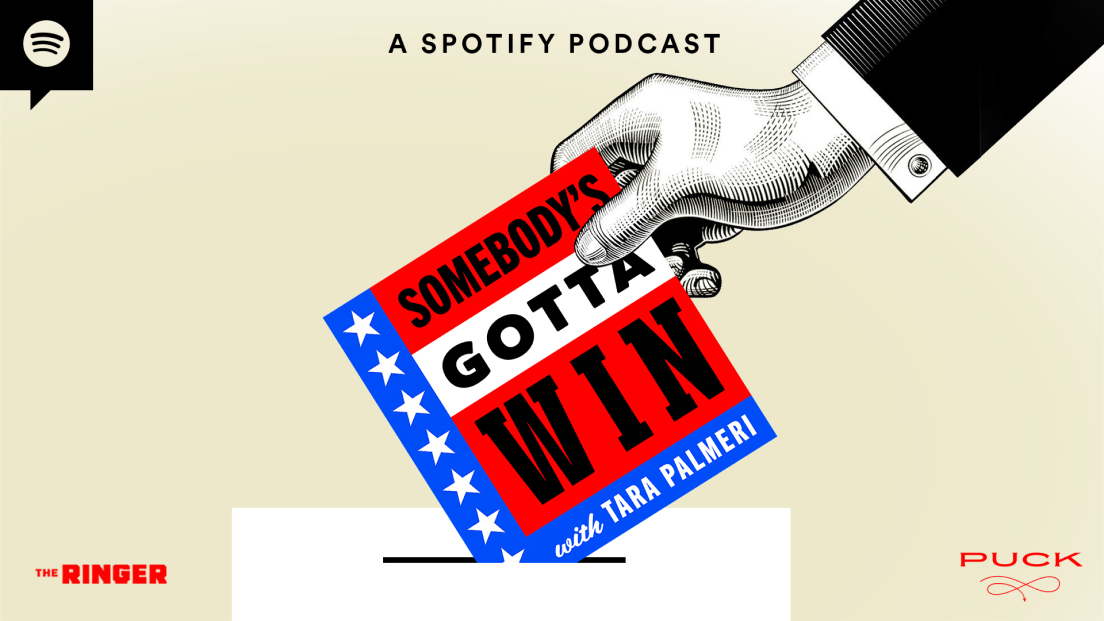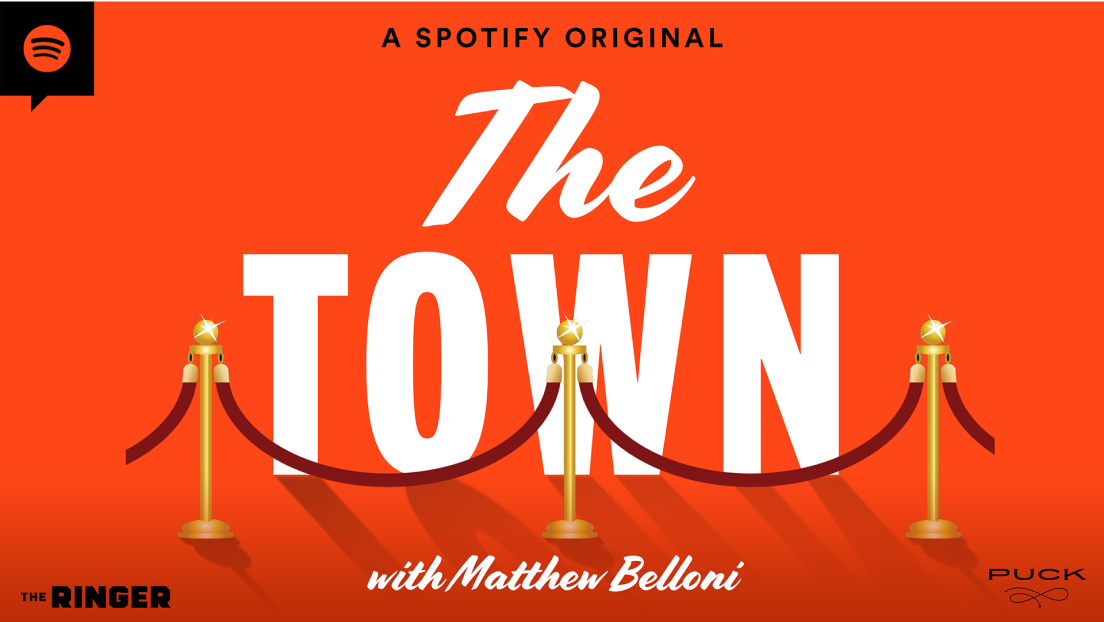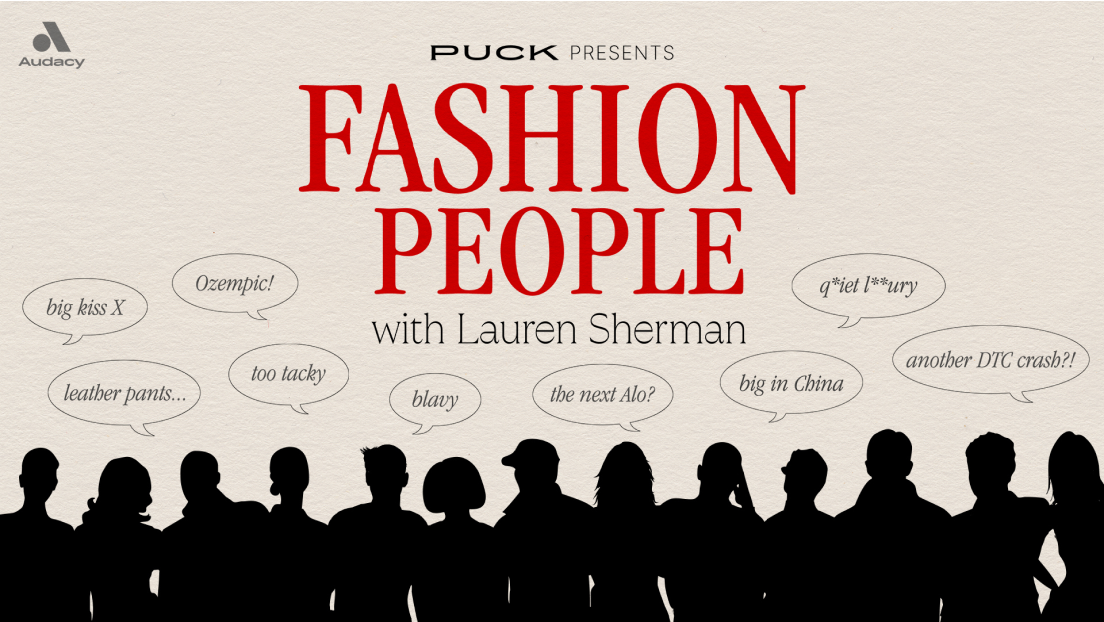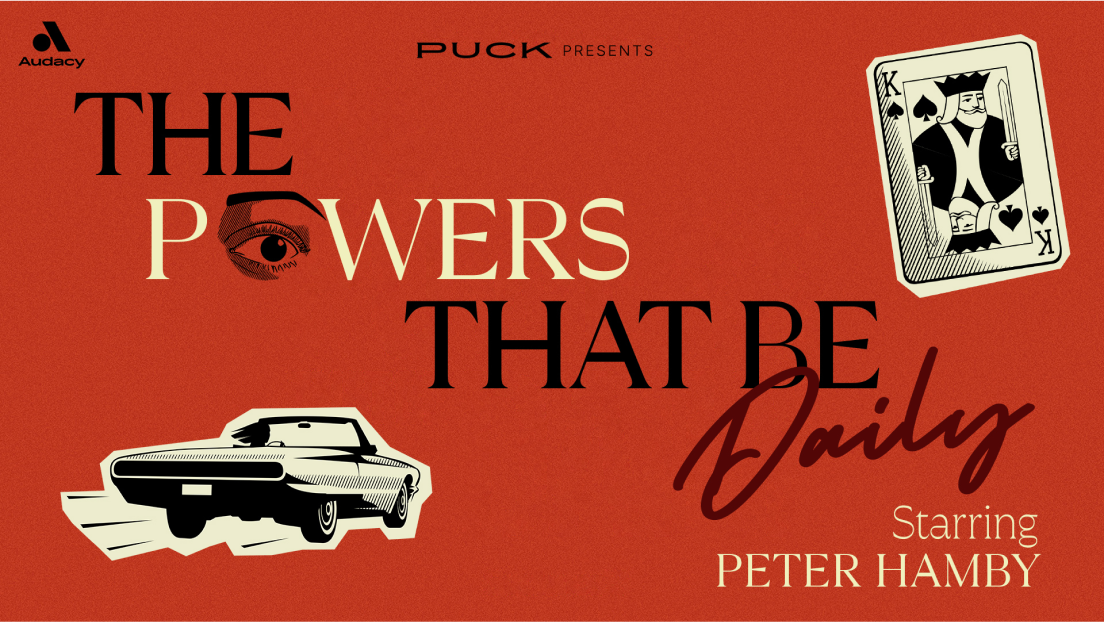
|
PREVIEW VERSION
|
|
|
|
Pritzker’s Postmortem, Chuck Todd Unplugged, Matt’s Grammys
Report
|
Welcome back to The Daily Courant, your afternoon compendium of Puck’s best new
reporting.
First up today, John Ourand reveals the secret culprit in the bizarre Luka Dončić–Anthony Davis trade heard around the world. Superstars on winning NBA teams are never exchanged midseason, and generational scorers like Luka are prized possessions. Chalk it up to changing media economics…
Plus, below the fold: Lauren Sherman offers an inside look at the Stella McCartney–LVMH breakup. Peter Hamby gets Illinois Governor JB Pritzker on the horn to discuss how Democrats can find a winning narrative on the economy. And Scott Mendelson scrutinizes the success of DreamWorks’ Dog Man during a peculiar lull in the animation market.
Meanwhile, on the pods: Tara Palmeri is joined by Democratic insider Alex Hoffman on Somebody’s Gotta Win to unpack all the chatter surrounding the D.N.C. elections. On The Town, Matt Belloni and Lucas Shaw offer their candid assessment of the 2025 Grammys. On The Grill Room, Dylan Byers books former Meet the Press anchor Chuck Todd for
an exit interview after nearly two decades at NBC. On Fashion People, Lauren and Harper’s Bazaar’s Lynette Nylander assess last night’s Marc Jacobs show. And on The Powers That Be, Leigh Ann Caldwell joins Peter to break down R.F.K. Jr. and Tulsi Gabbard’s confirmation battles.
|
|
|

|
John Ourand
|
|
Early Sunday morning, just hours after the Lakers edged out the Knicks at Madison Square Garden, ESPN’s Shams
Charania dropped a bombshell: The Lakers and Mavericks were swapping their franchise stars—Anthony Davis for Luka Dončić. Instantly, the NBA’s overcaffeinated hype machine kicked into overdrive, and social media gadflies were trying in vain to figure out who knew what and when. But at the core of the frenzy lay a much bigger question: How did this happen? Superstars on winning teams never get traded midseason. And generational scorers like Luka—especially in
smaller NBA markets like Dallas, and on winning teams in particular—are seen as untouchable assets. As it turns out, the answer might be surprisingly straightforward: media economics.
Read Now
|
|
|

|
Lauren Sherman
|
|
Six years ago, LVMH announced it was taking a 49 percent stake in Stella McCartney’s business, following her breakup
with Kering, which had owned 50 percent of the company she launched in 2001. Now, McCartney is buying back her business from the luxury conglomerate, and is once again a solo operator. Insiders suggest that, among other things, LVMH’s decision to shed McCartney was a signal to other underperforming brands in its portfolio that a new era of fiscal discipline and scalability has dawned. As Europe’s largest company, endowed with billions in shareholder capital, LVMH has a fiscal
responsibility to offload middling businesses—and Stella McCartney was certainly unprofitable. McCartney will need to prove herself once more, but has the market already moved on?
Read Now
|
|
|

|
Peter Hamby
|
|
In times like these, a political party’s red-rimmed eyes often turn to the states, where ambitious governors like to
brag about how their state is “a laboratory of invention” doing things differently—and, of course, better—than their colleagues in Washington. Illinois Governor JB Pritzker is one of them. After lying low, like many Democrats, during the first week of Trump II, Pritzker has since launched an all-out media blitz attacking the president for signing an executive order pausing federal spending and temporarily freezing Illinois’ Medicaid portal. Pritzker has quickly emerged as one of
Trump’s loudest critics within the Democratic Party, and is positioning himself as an all-but-certain presidential candidate in 2028. In conversation with Peter, Pritzker critiques the Democrats’ economic messaging, considers how his party should engage with the culture wars, and reframes the popularity of Trump’s immigration crackdown.
Read Now
|
|
|

|
Scott Mendelson
|
|
Dog Man, DreamWorks Animation’s $40 million adaptation of Dav Pilkey’s mega-popular graphic novel series,
nabbed a robust $36 million domestic this past weekend. Aside from being an unusually lucrative debut for an animated film in January, it’s also the latest evidence that Universal’s non-Illumination animation label can mint new franchises from popular, but not ubiquitous, material. As Scott observes, the theatrical industry needs animated films—many of this decade’s top performers were films that justified a family trip to the theater—but these days, the paucity of animated films is
practically inexplicable. To wit: After Dog Man, the next cartoon from a major studio—Pixar’s Elio—won’t arrive until June. So why aren’t more entertainment players trying to capitalize on the market opportunity?
Read Now
|
|
|

|
Tara Palmeri
|
|
Tara Palmeri begins by discussing the latest moves from the Trump administration and the ripple effects they could
send throughout the economy. Then, Democratic insider Alex Hoffman tells Tara about what he witnessed at this past weekend’s D.N.C. elections, where the party selected Minnesota’s Ken Martin to help the Democrats rise from the ashes over the next four years. The two discuss what Martin’s election means for the party’s future, how Kamala Harris fits into the party moving forward, the need for the Democrats to run an autopsy report on what went wrong in 2024, and more.
Listen Now
|
|
|

|
Matthew Belloni
|
|
Matt is joined by Bloomberg’s Lucas Shaw to recap an exciting and star-studded 2025 Grammy Awards, break down what it
was like to be there in person, and nominate their biggest winners and losers from music’s biggest night. They also talk about Chappell Roan’s acceptance speech pleading for record labels to treat their artists better, Kendrick’s dominant night, and Will Smith’s return to the awards show stage. The guys finish the show with an update to the 2025 Box Office Draft.
Listen Now
|
|
|

|
Dylan Byers
|
|
NBC News vet and former Meet the Press anchor Chuck Todd joins Dylan for a candid conversation about his
departure from the network after nearly two decades. He reflects on the decline of media trust, the urgent need to revitalize local journalism, and how the internet has reshaped news consumption. Chuck also scrutinizes the nationalization of politics before switching gears to explore how podcasts might evolve into dynamic, multihour programming, à la ESPN’s signature daytime shows.
Listen Now
|
|
|

|
Lauren Sherman
|
|
Lauren and Harper’s Bazaar executive digital director Lynette Nylander serve up instant reactions to Monday
night’s Marc Jacobs show at the New York Public Library. They also talk tariffs (or lack thereof), Dua Lipa’s Chanel commercial (cue Fine Young Cannibals’s “She Drives Me Crazy”), and the end of Biologique Recherche PF50 1970. (R.I.P.) Lauren also explains the Vuori phenomenon to Lynette.
Listen Now
|
|
|

|
Peter Hamby
|

|
Leigh Ann Caldwell
|
|
Leigh Ann Caldwell joins Peter to analyze the high-stakes confirmation battles of two of Trump’s most contentious
cabinet picks: Tulsi Gabbard for director of national intelligence and R.F.K. Jr. for secretary of Health and Human Services. Leigh Ann breaks down the key dynamics at play, the senators to watch as the processes unfold, and what could ultimately tip the scales in the nominees’ favor—or seal their fate.
Listen Now
|
|
|
Need help? Review our FAQ page or contact us for assistance. For brand partnerships, email ads@puck.news.
You received this email because you signed up to receive emails from Puck, or as part of your Puck account associated with . To stop receiving this newsletter and/or manage all your email preferences, click here.
|
Puck is published by Heat Media LLC. 107 Greenwich St, New York, NY 10006
|
|
|
|



_01JK94AGZ3CEBPWD0WYT5F4HMM.png)
_01JK94AG76D96SDJ3PCX4M1A97.png)

_01JK94AFM5N22QTZCWQP0V871M.png)























